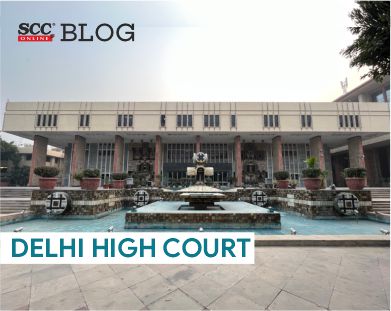Delhi High Court: In a petition filed under Article 226, whereby the petitioner, Natco Pharma Ltd. (NATCO) assailed an order passed by the Assistant Controller of Patents and Designs, allowing the Indian Patent Application filed by Respondent 2, Novartis AG (Novartis) on the aspect of procedural irregularity and violation of the principles of natural justice in the passing of impugned order, C. Hari Shankar, J., directed the Assistant Controller is directed to take a fresh decision on both on the application for registration as filed by Novartis as well as on the objection of NATCO and such a decision would be taken in accordance with the principles of natural justice and fair play and keeping in mind the dictates of the law in that regard.
Novartis filed a patent application for the grant of a patent titled, Pharmaceutical Compositions comprising Valsartan and NEP inhibitors which were granted by the Controller of Patent along with another application for a patent titled —pharmaceutical combinations of an Angiotensin Receptor Antagonist and a NEP Inhibitor. The First Examination report was filed by the examiner in the Controller of Patents having certain objections to the second application, which was responded to, and amended over a period.
Later, NATCO filed a pre-grant opposition to which Novartis replied, however, the Assistant Controller of Patents issued notice only to Novartis without informing NATCO about the same. Pursuant to this, the application of Novartis was allowed. Aggrieved by this, the present petition was filed for not being provided a fair opportunity of hearing in violation of the principles of natural justice.
The Court noted that in the principles of natural justice, especially audi alteram partem, where a statute expressly excludes the application of audi alteram partem, the Court cannot read the requirement into the statute by judicial fiat. Such exclusion is not, however, not to be presumed, where it is absent. Absent express exclusion of audi alteram partem by the statute, the presumption is that the requirement is included in it.
The Court further noted that where an opposition is filed to an application seeking a grant of a patent, the proceedings become adversarial. Due compliance with the principles of natural justice, in the case of adversarial proceedings, necessarily requires both parties to be involved in the proceedings at every stage. There is no provision either in the Patents Act or in the Patents Rules, which expressly envisages the exclusion of the objector who objects to an application seeking a grant of a patent, at any stage of the proceedings.
The Court recorded that the right to oppose the grant of a patent is just as sacrosanct as the right to seek a grant of a patent. The public interest involved in ensuring that patentable inventions are patented cannot be accorded a greater degree of sanctity than the public interest involved in ensuring that the non-patentable inventions are not allowed to be patented.
Section 59 of the Patents Act and the provision related to the amendment of the application contained in Chapter 10 of the Patents Act indicates that amendment is not a mere ministerial exercise, but seriously affects and results in civil consequences to the parties before the Controller, i.e., the applicant seeking to amend the claim as well as the objector who objects to the claim. Therefore, both parties must be heard before the amendment is allowed or rejected.
The Court observed that once the Controller forms an opinion that the patent specifications are required to be amended, communicates the said opinion to the applicant under Rule 55(3) under Patent Rules, and the applicant files a response thereto under Rule 55(4) with a copy to the pre-grant opponent, Rule 55(5) comes into play. Rule 55(5) requires the controller to consider the statement in evidence filed by the patent applicant, the representation including the statement in evidence filed by the opponent and the submissions made by the parties, and, if so requested, to hear the parties. As such, even at this stage, the statutory scheme envisages the hearing of both parties.
Thus, the Court held that the exercise that has been conducted by the Assistant Controller in the present case, of issuing a unilateral notice only to Novartis excluding Natco from the proceedings at that stage and granting a unilateral hearing to Novartis without the participation of Natco and thereafter, passing the order granting the patent is alien to the scheme of Rule 55 of the Patents Rules and cannot be sanctioned by any provision of the Patents Act, as there is no provision in the Act which allows such a procedure to be followed.
[NATCO Pharma Limited v. Assistant Controller of Patents and Designs, 2023 SCC OnLine Del 175, decided on 12-01-2023]
Advocates who appeared in this case :
Mr. J. Sai Deepak with Mr. G. Nataraj, Mr. Ankur Vyas, Mr. Shashikant Yadav, Ms. Harshita Aggarwal, Mr. Rahul Bhujbal and Ms. Garima Joshi, Advocates, for the Petitioner;
Mr. Hemant Singh, Ms. Mamta Jha, Mr. Siddhant Sharma, Ms. Garima Mehta and Mr. Abhay Tondon, Advs. Mr. Harish V. Shankar, CGSC with Mr. Srish Kumar Mishra, Mr. Sagar Mehlawat & Mr. Alexander Mathai Paikaday, Advocates, for the R-1.
*Arunima Bose, Editorial Assistant has reported this brief








Please make a blog on the next verdict of above article where Novartis filed an appeal before division bench against NATCO and got the stay on the stay order. Date: 19th January, 2023